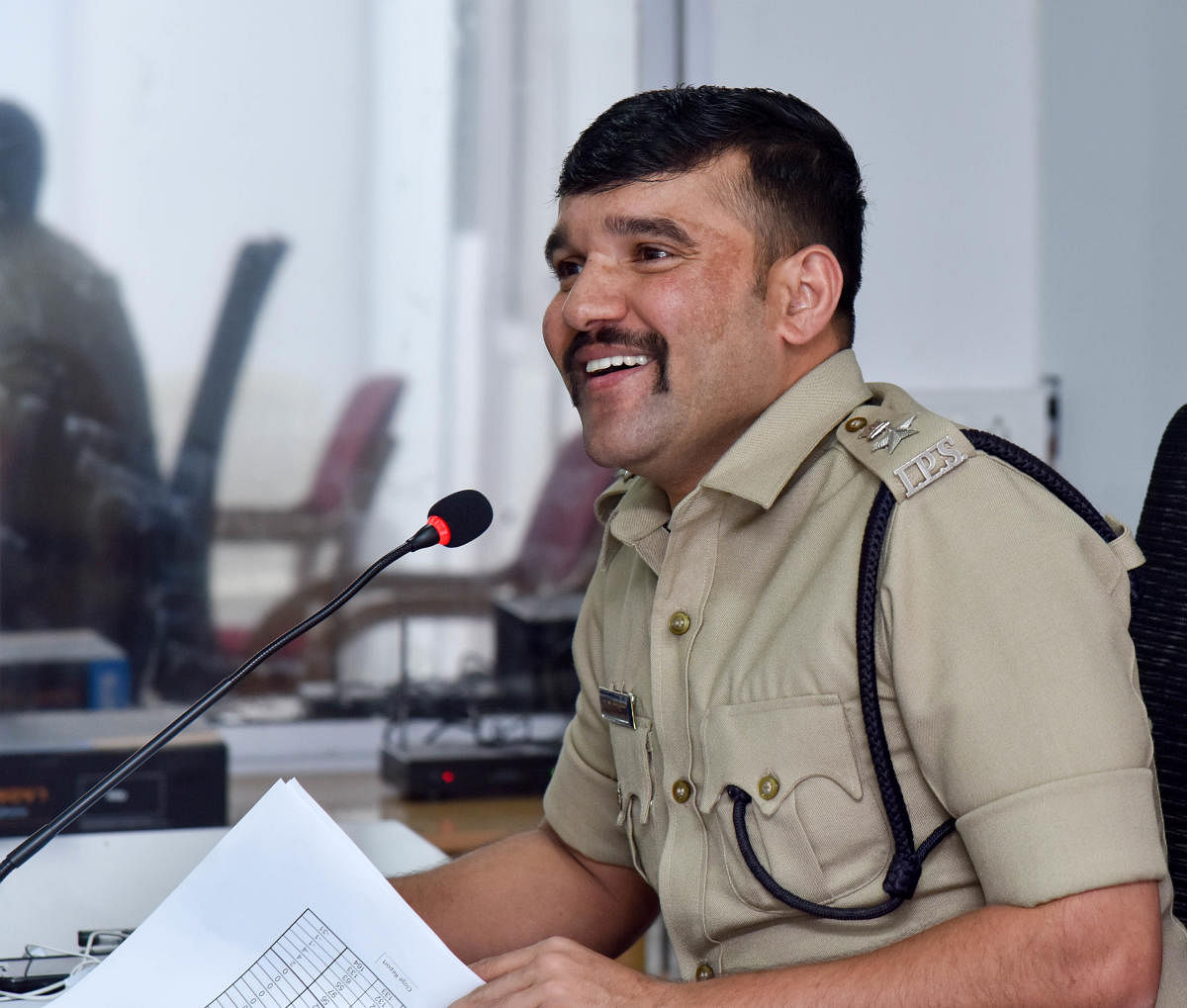
An IPS officer from the 2008 batch, Ravi D Channannavar is currently serving as the superintendent of police in CID, Bengaluru. Born in a humble family in Gadag district, he engaged in odd jobs as a student before qualifying for civil service. As an IPS officer, Channannavar is popular for his daring approach to tackling crime and undertaking people-friendly policies, including coaching centres he runs for children from underprivileged communities. He sits down for a conversation with DH’s Divyashri Mudakavi. Excerpts follow.
What inspired you to take up the civil services?
And bureaucracy or the civil service system is often referred to as the steel frame in a democracy. Governments come and go, parties come and go. But the bureaucracy remains. This fascinated me and drew me towards the civil services.
When I was a student, I had once asked a learned man named R R Pattan about getting a dignified job where knowledge and talent was respected over corruption. He then introduced me to the concept of civil services.
What were the challenges you faced as a civil service aspirant?
I face the same challenge as any other competitive exam aspirant who comes from a humble background and studied in a vernacular medium school. Even today, the most challenging part for such aspirants is précis writing, translation and other aspects related to the English language.
Though the UPSC’s basic syllabus hasn’t changed much, the type of questions go on varying. So, the challenge lies in understanding the relevance of the questions and reproducing within the word limit.
The second challenge was lack of proper guidance. Back then, there were few good coaching institutes in Karnataka. I first went to Bengaluru and then to Hyderabad, and had to adjust there. Today, there is no dearth of information but the challenge lies in analysing and assimilating the information.
The third challenge is enduring the family and peer pressure. Civil services is like a test match which needs a lot of patience to sustain.
How should aspirants zero in on the optional subjects?
We should choose the subjects based on our aptitude and not go by popularity or claims of ‘marks-fetching’ subjects. You need to ask yourself: 'Am able to sit with the subject for at least four hours? Have I understood the subject concepts properly? Can I reproduce them in a clear manner?'
Is coaching a necessity to crack civil services, especially for the present generation?
Those who are confident of understanding concepts in one go can do without any coaching. For instance, there are several people who have learnt through YouTube too.
But civil services is an exam which attracts aspirants coming from diverse social, educational, economical and geographical backgrounds. So for an average student to develop skills to compete with the rest, coaching becomes essential. Also, group studies provide better exposure and understanding.
What does your day as an IPS officer look like? What is the best part of your job?
It is fantastic and I enjoy every bit of it. Police service is like a grievance redressal service and I try to be a solution point. In India, oral norms govern life of people more than the written constitution, and it is my responsibility to address issues keeping this in view. I try to be accessible to even the last person of society, and become their strength.
You are part of the system where you can help many people in many ways. People come to you with a hope, and we need to respond to them. A senior officer is not here to file an FIR but to alert the system and run it efficiently. The responsibility given to you by the society which trusts you is the most satisfying part.
How do you focus on fitness amid your tight schedule?
I am a runner and I play tennis. I exercise at least four days a week for around 45 minutes.
Some exciting moments from your career?
Every day in a policeman’s life is unique. There have been instances where we have faced law and order challenges like riots but personally, I remember my days as probationary officer in Kalaburagi and then ASP in Belagavi, where checking communal riots, night rounds, raids, ruthless action against matka, gamblers etc. all seemed challenging.
What are the traits that one must have to become an IPS officer?
It is courage. Courage to study anything given, courage to face any situation, courage to accept failure and rise again, courage to take up responsibility. Once this is there, rest all falls in line.
What motivated you to help young aspirants crack the civil services? How are you training/supporting them?
I have seen students struggle. So through my foundation which runs one coaching institute in Dharwad and one in Bengaluru, we give free training to children of police/soldiers/farmers/farmers who have committed suicide and destitute to crack KPSC, FDA, SDA, PSI and other exams.
Each batch has ten students and till now, we have trained 14 batches. Soon, we plan to start some skill development activity with an objective of helping SSLC/PUC pass students get a job and not sit idle.
Even today, many competitive exam aspirants from north Karnataka have a fear of English. In exams like PSI, the most challenging part for such aspirants is précis writing, translation and other aspects of English language. Through our institute, we coach them to overcome these fears. We also offer guidance on UPSC to interested candidates.